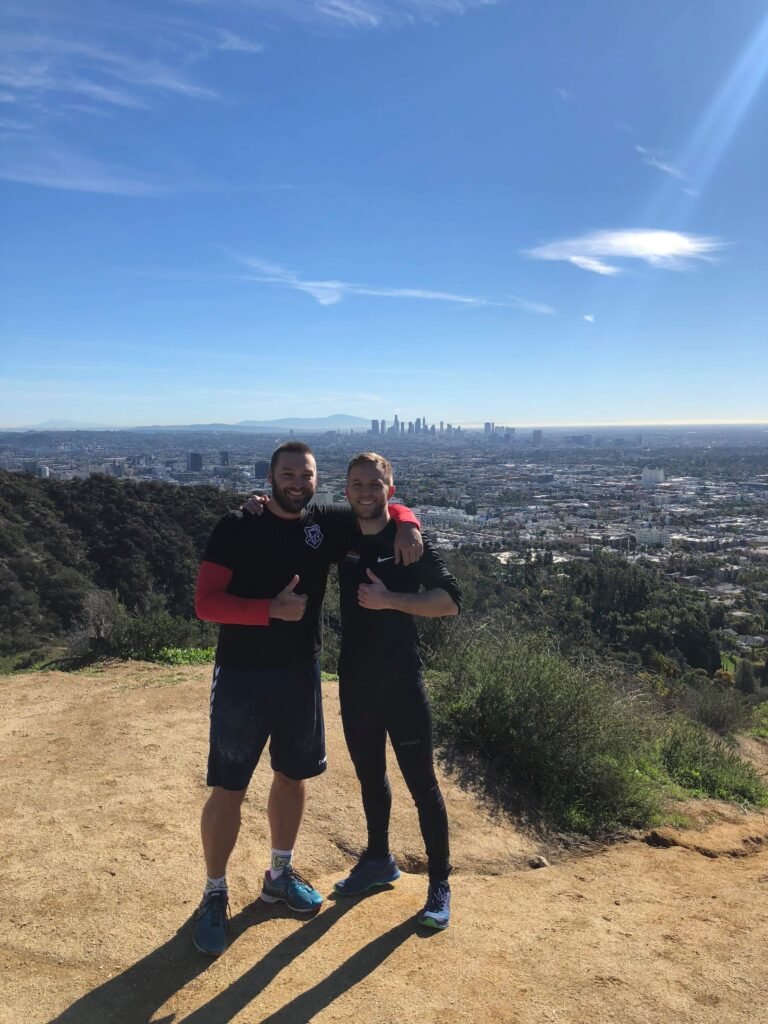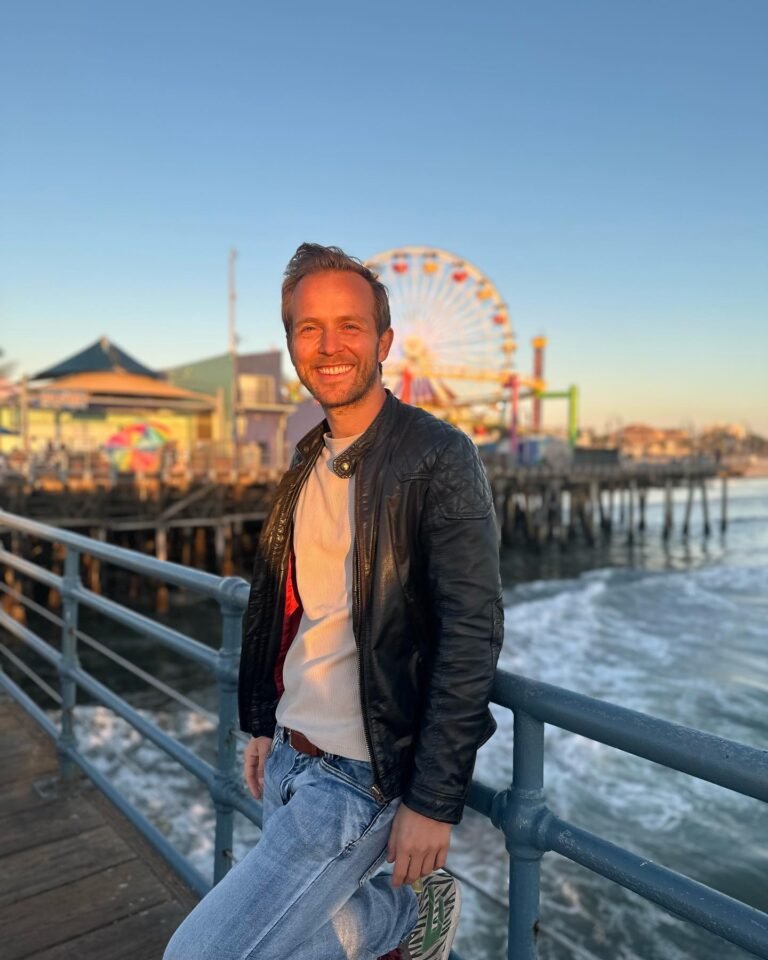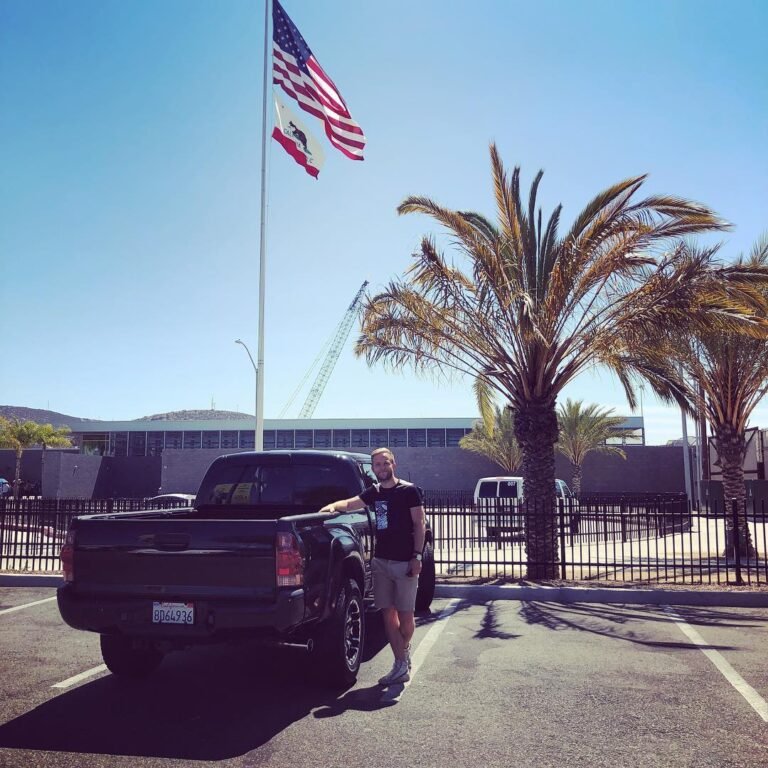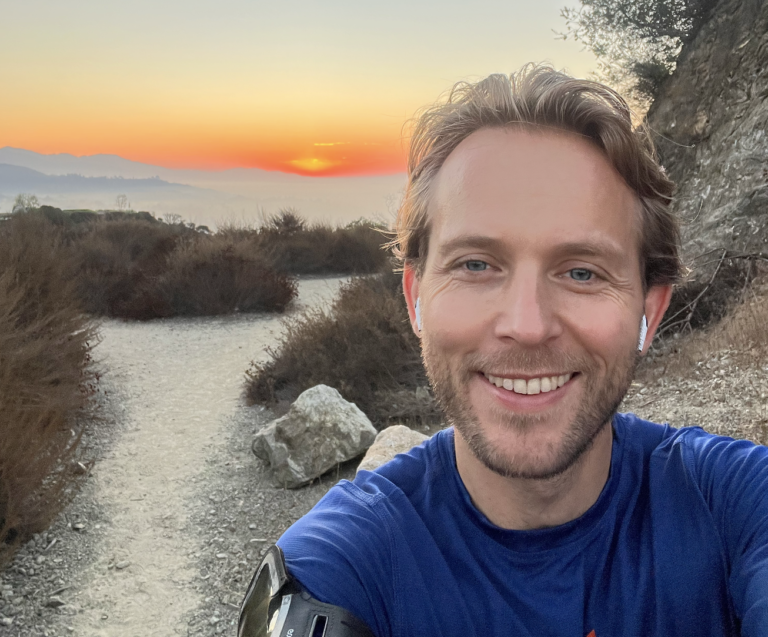Expert Tips for Strengthening Your O-1 Visa Application
The O-1 visa is one of the most sought-after U.S. work visas for individuals with extraordinary abilities. Whether you’re an artist, scientist, entrepreneur, or athlete, the application process is rigorous and requires a well-structured case. So, how do you ensure your petition stands out? In this guide, I’ll share expert tips to help you build a compelling O-1 visa application, backed by strong evidence and a strategic approach.
Understanding the O-1 Visa Criteria
BBefore diving into the tips, it’s essential to understand the fundamental requirements for an O-1 visa. The U.S. Citizenship and Immigration Services (USCIS) assesses applicants based on their extraordinary achievements in their respective fields. Unlike other work visas, the O-1 is specifically for individuals who have reached a high level of recognition in their industry.
Who Qualifies for an O-1 Visa?
The O-1 visa is designed for people who have demonstrated exceptional talent in:
- Science – Researchers, engineers, scientists, and medical professionals
- Arts – Musicians, actors, filmmakers, designers, and creative professionals
- Education – Professors, lecturers, and academic contributors
- Business – Entrepreneurs, executives, and industry leaders
- Athletics – Professional athletes and sports coaches
Essentially, the visa is meant for those who have built a strong reputation and can prove they are at the top of their field.
Are you working in Arts? Check this one out Can You Move to the U.S. as a Musician, Actor, or Artist? Here’s How to Get Your O-1 Visa
Or if you are an entrepreneur i would recommend this one O-1 Visa for Startup Founders in 2025: A Game Changer for Entrepreneurs
How USCIS Evaluates Extraordinary Ability
To qualify, you need to meet at least three of the following USCIS criteria:
1. Awards and Recognitions
Winning significant national or international awards, such as a Pulitzer Prize, an Oscar, or an Olympic medal, can make your case strong. However, even if you don’t have a world-famous award, smaller but notable industry recognitions can help.
2. Published Material About You in Major Media
Articles, interviews, or mentions in well-known publications strengthen your profile. This could be features in business magazines, tech blogs, or trade journals relevant to your industry. The more respected the source, the better.
3. High Salary or Significant Remuneration
Earning a salary that is well above industry standards can be a strong indicator of extraordinary ability. Providing contracts, tax returns, or offer letters that showcase your earnings can help prove this.
4. Membership in Prestigious Organizations
Being part of exclusive industry groups or professional organizations that require outstanding achievements to join can significantly boost your application. For example, being a member of the Academy of Motion Picture Arts and Sciences (Oscars) or IEEE for engineers.
5. Original Contributions to Your Field
If you’ve developed something unique—such as an invention, a patent, or a breakthrough theory—you may qualify under this category. Providing supporting documents, peer reviews, and citations can strengthen this claim.
6. Leadership Roles or Judging Experience
Serving as a judge for industry awards, speaking at conferences, or leading projects that have had a significant impact can show your influence. If you’ve been invited to evaluate the work of others in your field, that’s a strong sign of recognition.
Understanding these criteria is crucial because they set the foundation for your application. Now that we know what USCIS is looking for, let’s explore how you can strengthen your case and build an application that stands out.
1. Showcase Your Achievements with Strong Evidence
When applying for an O-1 visa, having extraordinary abilities isn’t enough—you need to prove them with solid documentation. USCIS relies heavily on tangible evidence, so your goal is to present your accomplishments in a way that leaves no doubt about your qualifications.
Gather Documentation of Awards, Media Features, and Recognitions
Start by compiling all relevant materials that demonstrate your excellence. Think of this as building a case for why you are at the top of your field. Some of the best types of evidence include:
- Industry Awards: Any national or international recognition you’ve received. Even nominations for prestigious awards can be valuable.
- Press Coverage: Articles, interviews, or mentions in major media outlets. If your work has been featured in publications with a strong reputation, that adds credibility to your application.
- Speaking Engagements: If you’ve been invited to give talks, keynote speeches, or panels at major conferences, this shows that you are a recognized expert in your field.
- Professional Endorsements: Being backed by industry leaders or organizations helps validate your achievements. Letters from respected individuals in your industry can be incredibly persuasive.
If you don’t have all of these, don’t worry—USCIS doesn’t expect you to meet every single one. The key is to focus on quality over quantity.
Provide Detailed Explanations of Your Contributions and Their Impact
USCIS wants more than just a list of achievements. They need to understand why your work matters. This is where many applicants fall short—they submit documents without context.
To strengthen your case, go beyond the surface and explain:
- What exactly did you do? Describe your role in a project, invention, or creative work.
- Why was it important? Explain the impact of your contributions—did they change industry standards, introduce new technology, or influence a large audience?
- Who benefited from your work? If your work has helped businesses grow, improved a particular industry, or reached a significant number of people, make sure to highlight that.
A well-structured explanation can turn an ordinary-looking document into a compelling piece of evidence.
Include Testimonials from Experts in Your Industry
Strong letters of recommendation can make a huge difference. These letters should come from industry leaders who are well-established and credible.
Each letter should:
- Explain the writer’s credentials – The person writing should be someone with recognized authority in your field.
- Describe how they know you – USCIS wants to understand your professional relationship with the writer. Did you collaborate on a project? Did they review your work?
- Highlight your impact – The letter should detail why your contributions are exceptional and how they have influenced your industry.
The stronger and more detailed these letters are, the better. Generic praise doesn’t hold much weight—real stories and specific examples carry far more influence.
By building a well-documented, evidence-driven case, you make it easier for USCIS to see that you truly meet the O-1 visa criteria. Let’s move on to how you can further refine your application to make it as strong as possible.
2. Build a Powerful Recommendation Letter Portfolio
Recommendation letters are one of the most important parts of your O-1 visa application. These letters serve as expert endorsements, reinforcing your qualifications and credibility. USCIS officers aren’t necessarily experts in your industry, so a well-crafted recommendation letter can help them understand your impact.
Obtain Letters from Recognized Experts in Your Field
Not all recommendation letters carry the same weight. USCIS wants to see letters from highly respected individuals who have authority in your industry. Ideally, you should aim for a mix of the following:
- Industry Leaders & Influential Figures – Well-known professionals with significant accomplishments in your field. Their endorsements provide strong validation of your expertise.
- Employers & Clients – If you’ve worked with top-tier companies, founders, or executives, their letters can show how your contributions directly impacted their business.
- Professors & Researchers – If your work has an academic or research component, letters from renowned scholars can add credibility.
- Past & Current Collaborators – If you’ve worked on notable projects with respected professionals, they can speak to your role and unique contributions.
The more prestigious and relevant the letter writers are, the stronger your case will be. However, it’s quality over quantity—a few powerful letters from credible sources are better than a stack of generic ones.
Ensure Letters Highlight Your Unique Skills and Contributions
A strong recommendation letter shouldn’t just say, “This person is talented.” It needs to be specific and evidence-based. Every letter should clearly answer:
- What makes you exceptional? – What unique skills, talents, or expertise set you apart from others in your field?
- How have you contributed to your industry? – What are some specific projects, inventions, or achievements that have had an impact?
- Why is your work important? – How has your expertise influenced your field, improved an industry, or contributed to innovation?
For example, instead of a vague statement like:
“Kristoffer is an excellent entrepreneur and innovator.”
A much stronger statement would be:
“Kristoffer played a key role in the development of [specific project], which revolutionized [specific aspect of industry]. His expertise in [specialized skill] directly contributed to the success of [company/product], increasing revenue by X% and expanding the company’s reach to [specific number] countries.”
These kinds of quantifiable, detailed statements help USCIS understand the depth of your contributions.
Use a Mix of Employer References, Industry Leaders, and Collaborators
Your recommendation letters should present a well-rounded picture of your career. The best way to achieve this is by including a mix of perspectives:
- Employer References: If you’ve held a leadership position or worked with notable companies, letters from former employers can demonstrate how your expertise added value.
- Industry Experts & Thought Leaders: These letters add credibility to your global reputation. If respected figures in your industry recognize your work, USCIS is more likely to do the same.
- Colleagues & Collaborators: Those who have worked alongside you can provide insights into your work ethic, creative process, and problem-solving abilities.
Having a variety of sources strengthens your case, showing USCIS that your impact is recognized across different areas of your field.
How Many Letters Do You Need?
There’s no official minimum or maximum number of recommendation letters required for an O-1 visa, but most successful applications include 5-7 high-quality letters. The key is substance over quantity—each letter should add unique value rather than repeating the same points.
Final Tip: Make It Easy for Your Recommenders
Your letter writers are likely busy professionals, so it’s helpful to provide a draft or key points they can work from. This ensures the letters include all the necessary details while still sounding authentic to their voice.
A well-crafted recommendation letter portfolio can make or break your O-1 visa application. Once you have strong letters in place, the next step is to showcase your leadership and originality in the field. Let’s dive into that next.
3. Demonstrate National or International Recognition
One of the key criteria for an O-1 visa is proving that you have gained significant recognition in your field. USCIS wants evidence that your work has been acknowledged beyond your immediate professional circle—this means press coverage, participation in major events, and validation from authoritative sources.
A strong application will clearly show how you’ve influenced your industry on a national or international level, rather than just excelling in a local or niche environment.
Provide Articles, Interviews, or Features in Top Publications
If your work has been featured in reputable media outlets, this is strong evidence of your influence. USCIS prioritizes press coverage in recognized publications—this could be major industry magazines, well-known news platforms, or academic journals.
Here’s what you can include:
- News articles about your work – Any media coverage discussing your achievements, innovations, or contributions.
- Interviews where you are the subject – If journalists or media outlets have interviewed you about your expertise, this shows that your opinions are valued.
- Op-eds or guest contributions – If you’ve written expert articles for reputable publications, this highlights your thought leadership.
- Podcast or video interviews – If you’ve appeared on respected podcasts, YouTube channels, or TV segments discussing your work, these can support your case.
What Counts as a “Top Publication”?
Not every blog or website will hold weight with USCIS. They are looking for high-authority sources, so focus on:
- Mainstream media outlets – National publications like Forbes, The New York Times, BBC, or Bloomberg.
- Respected industry-specific publications – Leading platforms in your niche, such as TechCrunch for tech entrepreneurs or The Hollywood Reporter for entertainment professionals.
- Academic or scientific journals – If applicable, having research published in top-tier journals demonstrates recognition among experts.
If you’ve been featured in smaller publications, they can still be useful—especially if they are well-regarded within your industry. However, they should complement stronger mainstream or industry-level press rather than serve as your primary evidence.
Highlight Participation in Major Events or Conferences
Speaking at high-profile industry events is another excellent way to demonstrate recognition. USCIS considers public visibility an important factor in proving extraordinary ability, so if you’ve been invited to speak, present, or participate at well-known events, this is strong supporting evidence.
Some examples include:
- Keynote speeches – If you’ve been invited as a keynote speaker at a major conference, this strongly supports your case.
- Panel discussions – Being selected as a panelist at a respected event means your expertise is valued.
- Industry summits or conventions – Participation in globally recognized industry gatherings, trade expos, or summits shows your work has broader relevance.
- Competitions and awards ceremonies – If you’ve been nominated for or won awards at major events, this is clear evidence of recognition.
How to Strengthen This Evidence
Simply stating that you’ve spoken at an event isn’t enough—you need to prove it with documentation. Some useful materials include:
- Official event programs or websites listing you as a speaker or panelist.
- Videos or photos of you presenting.
- Event press coverage mentioning your participation.
- Testimonies from event organizers confirming your involvement.
The goal is to show why your invitation was significant—was the event well-attended? Did it attract international participants? Did other industry leaders participate? These details help demonstrate the scale of your recognition.
Show Media Coverage of Your Work or Contributions
Beyond personal press coverage, media mentions of your work can also serve as powerful evidence. If your projects, products, or innovations have been featured in the media—especially without you having to pitch them—this suggests widespread industry recognition.
Some examples include:
- Articles discussing projects you’ve led – If a publication covers something you’ve created or contributed to, it helps show that your work has had an impact.
- Mentions in trend reports or expert roundups – If respected analysts or media sources reference your work, it indicates thought leadership.
- Case studies or success stories – If your contributions have been used as case studies in respected publications or reports, this strengthens your case.
What if You Don’t Have Enough Press Coverage?
If you don’t yet have significant media recognition, there are still ways to build this evidence before applying:
- Pitch your story to journalists – Reach out to industry publications with a compelling angle about your achievements.
- Leverage PR strategies – Work with a publicist or PR firm to gain media coverage in relevant outlets.
- Create industry-relevant content – Publishing articles, participating in discussions, or sharing insights on respected platforms can increase visibility.
- Apply for speaking opportunities – Many conferences accept applications for panelists and speakers, so actively seek out opportunities to share your expertise.
While media recognition isn’t the only requirement for an O-1 visa, it significantly strengthens your case. If you have the right press, event participation, and public recognition, you’ll be one step closer to proving your extraordinary ability.
Up next, let’s talk about how you can demonstrate your original contributions to your field.
4. Prove Your Leadership and Influence
To qualify for an O-1 visa, it’s not enough to just be great at what you do—you need to show that you’re a leader in your industry. USCIS wants to see proof that you are not just participating in your field but shaping it. This means demonstrating influence, mentorship, and high-level contributions that set you apart from others in your profession.
If you’ve taken on leadership roles, spearheaded major projects, or been recognized as a mentor or industry expert, this is exactly the kind of evidence that can make your case stronger.
Document Your Role in Significant Projects or Initiatives
A key way to prove your leadership is by showing your involvement in high-impact projects. This could be:
- Leading a team or department – If you’ve managed teams, directed projects, or held executive roles, this shows leadership.
- Launching a successful product or initiative – If you’ve been responsible for creating or overseeing something that had a measurable impact, document it.
- Contributing to industry advancements – If your work has influenced best practices, inspired others, or led to new developments, this is valuable.
- Holding a key role in major companies or organizations – If you’ve worked at a well-known company in a leadership capacity, this supports your case.
How to Strengthen This Evidence
When describing your leadership roles, be specific. Instead of just stating that you “led a project,” provide:
- Project descriptions – What was the goal? What challenges did you overcome?
- Metrics and results – Did you increase revenue, expand an audience, or improve efficiency? Provide numbers if possible.
- Your unique contribution – What did you personally bring to the table that made the project a success?
Supporting documents can include:
- Official company records or contracts proving your leadership role.
- Letters from colleagues or industry peers verifying your contributions.
- Reports, case studies, or impact assessments showing measurable outcomes.
Show Any Mentorship, Judging Roles, or Thought Leadership Activities
Another major way to prove influence is by demonstrating that others in your field look to you for guidance.
Some strong examples include:
- Mentorship – If you’ve mentored up-and-coming professionals, served as an advisor, or trained others in your industry, this shows leadership.
- Judging or evaluation roles – Being invited to judge competitions, awards, or industry events is a sign of expertise.
- Board memberships – If you sit on the board of an organization or advisory group, this confirms your influence.
- Industry certifications or expert panels – If you’ve contributed to standard-setting in your field, this is strong evidence of thought leadership.
How to Strengthen This Evidence
To make this section as compelling as possible, include:
- Certificates or official invitations showing you were selected as a judge, board member, or mentor.
- Testimonials from mentees or colleagues explaining how your guidance impacted their careers.
- Event materials or press coverage proving your participation.
Include Evidence of Public Speaking Engagements or Panel Discussions
Public speaking is one of the best ways to prove thought leadership. If you’ve been invited to speak at industry conferences, summits, or workshops, this is strong evidence that you’re recognized as an expert.
Some examples:
- Keynote speeches at major events – If you’ve been a keynote speaker, it’s a clear sign of industry recognition.
- Panel discussions at respected conferences – Even participating in panels can be valuable, especially at international events.
- Guest lectures or teaching roles – If you’ve been invited to teach at universities, workshops, or training programs, this adds credibility.
- TEDx or high-profile industry talks – If you’ve spoken at widely recognized events, this further proves your influence.
How to Strengthen This Evidence
Make sure to collect:
- Conference programs or event schedules listing you as a speaker or panelist.
- Videos or photos of you speaking at events.
- Media coverage or press releases mentioning your talk.
- Testimonials or feedback from attendees proving your impact.
What If You Haven’t Held a Formal Leadership Role?
If you haven’t had an official leadership title, you can still demonstrate influence through:
- Contributing to industry publications – Writing expert articles or opinion pieces shows thought leadership.
- Hosting workshops or training sessions – If you’ve shared your expertise in a structured way, document it.
- Organizing events or initiatives – Even if you weren’t the official leader, if you played a major role in organizing something important, highlight it.
The key is to frame your contributions in a way that clearly shows impact, recognition, and influence.
By showcasing your leadership, mentorship, and public presence, you make a strong case for your extraordinary ability. Now, let’s dive into how you can further solidify your O-1 visa application with original contributions to your field.
5. Establish a Strong Case with a Legal Expert
When you’re going through the visa process, especially as an entrepreneur or individual looking to move to the U.S., it’s crucial to have a legal expert by your side. It can feel like a maze of paperwork, deadlines, and rules that might seem impossible to navigate alone. That’s where an experienced immigration attorney comes in.
Why a Legal Expert Is Essential
An immigration attorney is more than just someone who knows the law. They’re your guide through a complex system and can help you make the best possible case for your application. With their expertise, they’ll help you avoid common pitfalls that could delay or even jeopardize your visa application.
I can’t stress enough how important it is to partner with someone who has been through the process multiple times. They understand what USCIS expects and what will get your petition noticed for all the right reasons. They also know which mistakes are easy to make, and trust me, you’ll want to avoid those.
Professional Guidance on Compiling Your Evidence
One of the hardest parts of the visa application process is compiling all the necessary evidence to support your case. This can include things like financial documents, personal history, professional achievements, and other forms of proof that show you meet the requirements. A legal expert will help you organize and present your evidence in the most convincing way possible.
For example, when I was working on my own visa petition, I had to gather quite a bit of documentation, from my business history to my plans in the U.S. Without the guidance of my attorney, I could have easily missed a crucial detail or provided evidence in a way that wouldn’t have been as effective. A legal expert can help you highlight the most compelling aspects of your case, ensuring that everything you submit is relevant and structured correctly.
Ensure Your Petition Is Well-Structured and Follows USCIS Requirements
The U.S. Citizenship and Immigration Services (USCIS) has strict guidelines about how your petition should be structured. Even small mistakes in formatting or missing information can lead to delays or even denials. An attorney will help ensure that everything is in line with USCIS requirements, from the initial application to the supporting documentation and follow-up requests.
This attention to detail can make or break your petition. You want to make sure that every section of your application is perfectly aligned with what USCIS is looking for. A legal expert doesn’t just help you fill out forms; they provide strategic advice on how to present your case in the best possible light.
Partnering with an immigration attorney is one of the smartest decisions you can make during this journey. Their insight and support can save you time, frustration, and most importantly, increase your chances of success.
Conclusion
Securing an O-1 visa is not a simple task, but it is definitely achievable with the right approach. If you’re an entrepreneur or professional who has made notable achievements in your field, the O-1 visa could be the perfect option for you. However, the process requires more than just filling out forms—it’s about presenting a solid case that showcases your unique skills, accomplishments, and potential to contribute to the U.S.
Showcasing Your Achievements
One of the key factors that will help you stand out during the O-1 visa process is how well you can demonstrate your accomplishments. Whether it’s through awards, publications, or groundbreaking work in your industry, having strong evidence of your expertise and recognition is essential. The more detailed and organized your evidence is, the stronger your case will be. It’s not just about what you’ve done; it’s about how you present it and how it aligns with the criteria that USCIS is looking for.
Gathering Strong Recommendation Letters
Recommendation letters are another critical component in building a strong case. These letters from people who are well-respected in your field can add tremendous weight to your petition. It’s not just about getting a letter from anyone—it’s about having credible, influential individuals vouch for your skills and contributions. When I went through the process, I realized how impactful these letters could be, and having the right people write them made all the difference.
Demonstrating Your Influence in Your Field
The O-1 visa isn’t just about being good at what you do—it’s about showing that you have the potential to make a significant impact in your industry. This means you need to demonstrate your influence and recognition on a larger scale. Whether that’s through media coverage, collaborations with major players in your field, or speaking engagements, proving that you are a leader or emerging leader in your area of expertise is crucial.
Expert Assistance
While these steps may seem straightforward, the visa application process is anything but simple. That’s why working with an experienced immigration lawyer can be incredibly helpful. They can guide you through the entire process, ensuring you meet all the USCIS requirements and help you present your case in the most compelling way possible. A lawyer can help you avoid common mistakes and ensure that your petition is structured in a way that maximizes your chances of approval.
As someone who has been through the process myself, I can tell you that having an expert on your side is invaluable. It gives you peace of mind, knowing that your application is in good hands and that you’re not missing any crucial steps. If you’re feeling overwhelmed by the complexity of the process, don’t hesitate to reach out to an immigration attorney—they’ll make sure your application is as strong as it can be.







